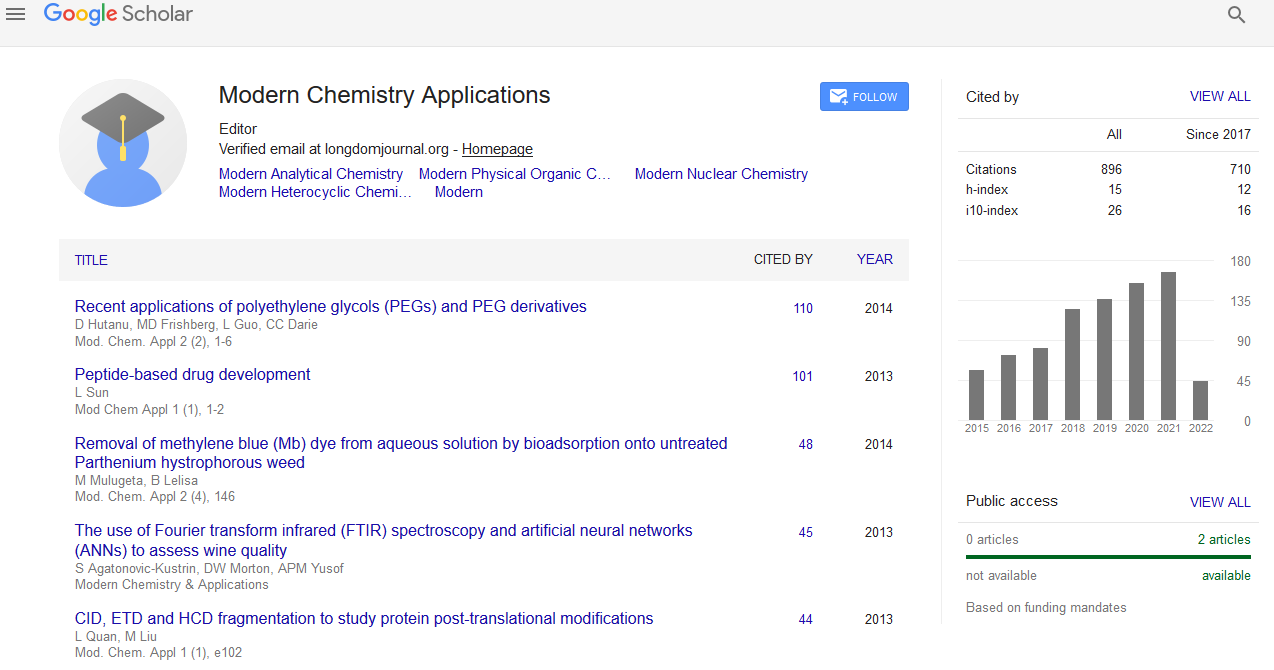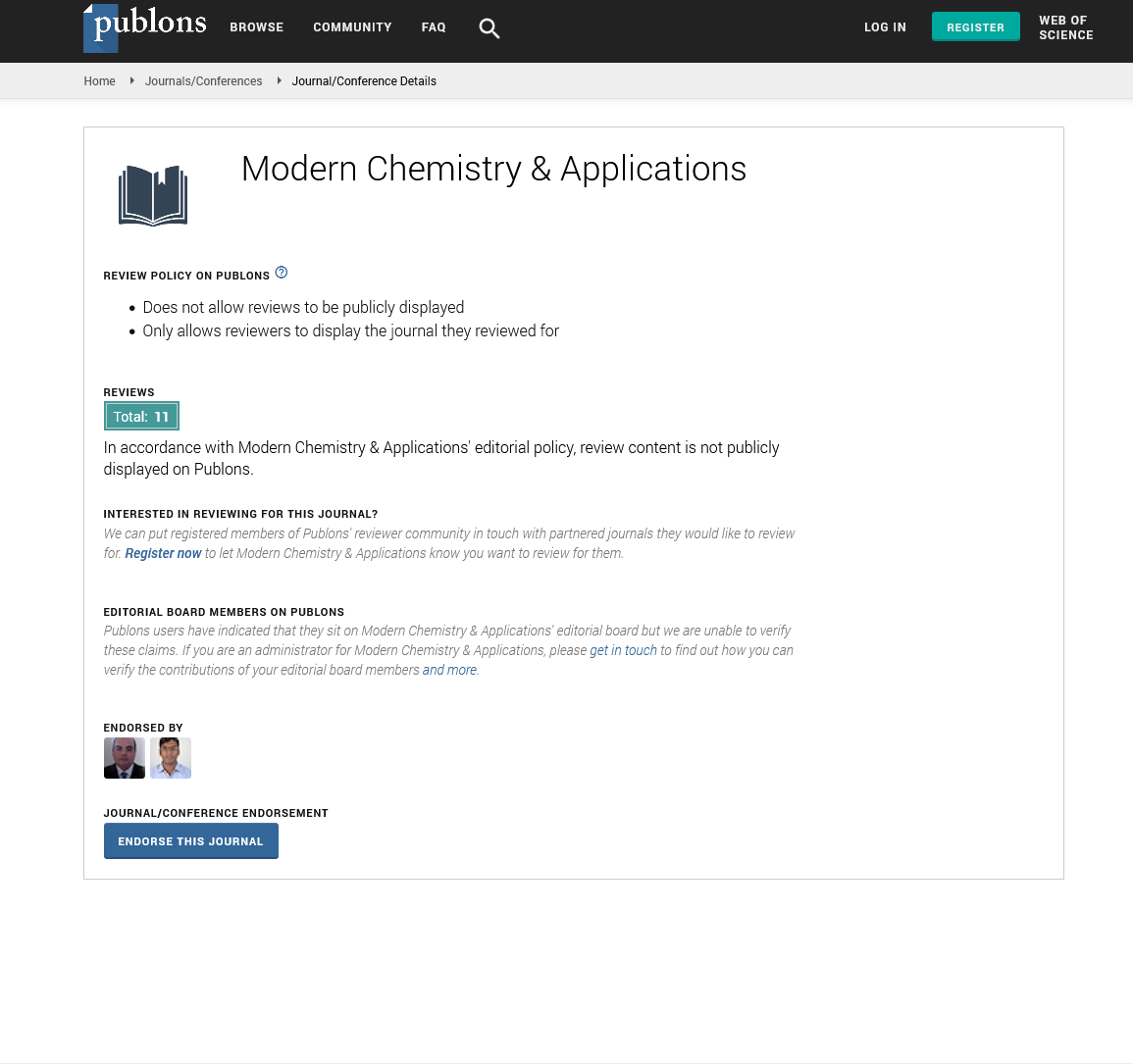Indexed In
- Open J Gate
- JournalTOCs
- RefSeek
- Hamdard University
- EBSCO A-Z
- OCLC- WorldCat
- Scholarsteer
- Publons
- Geneva Foundation for Medical Education and Research
- Google Scholar
Useful Links
Share This Page
Journal Flyer

Open Access Journals
- Agri and Aquaculture
- Biochemistry
- Bioinformatics & Systems Biology
- Business & Management
- Chemistry
- Clinical Sciences
- Engineering
- Food & Nutrition
- General Science
- Genetics & Molecular Biology
- Immunology & Microbiology
- Medical Sciences
- Neuroscience & Psychology
- Nursing & Health Care
- Pharmaceutical Sciences
Abstract
Evaluation of the Acute and Sub-chronic Toxicity of the Ethanolic Extract of Curcuma longa (Zingiberaceae) in Wistar Albino Rats
Donatien Gatsing*, Gabriel Tchuente Kamsu, Simeon Pierre Chegaing Fodouop, Richard Simo Tagne, Norbert Kodjio and Adolette Lesly Nguelebek Fakam
Background: Commonly called "two hundred diseases" in Western Cameroon, Curcuma longa is a plant widely used in traditional medicine for many years. In order to evaluate the safety of this plant commonly use in the treatment of typhoid fever in Cameroon, the acute and Sub-chronic toxicity of the ethanolic extract of Curcuma rhizomes has been studied in albino rats of Wistar strain.
Materials and methods: Acute and sub-acute toxicity of this extract were study using OCDE 2008 guidelines.
Results: The physical parameters were recorded during the experiment and the hematological and biochemical parameters, as well as the histology of the liver and reproductive organs were carried out at the end of the experiment. The acute toxicity study revealed no toxic effects, no behavioural disturbances and no death in rats. The Sub-chronic toxicity study revealed an increase in feed intake and weight gain in male and female rats at test doses throughout the treatment period. A significant decrease of transaminase activity, serum creatinine level, LDL cholesterol level and the artherogenicity index in the test animals compared with the control were noted. Repeated administration of the extract also increased urinary creatinine levels, white blood cell counts, and HDL cholesterol levels. The extract kept a constant level of red blood cells in animals and had no visible effect on the reproductive organs of male and female rats.
Conclusion: This extract can therefore be used for the formulation of phytomedicine against typhoid fever at the therapeutic dose of 30 mg/kg used by traditional practitioners.
Published Date: 2019-12-04; Received Date: 2019-11-06


